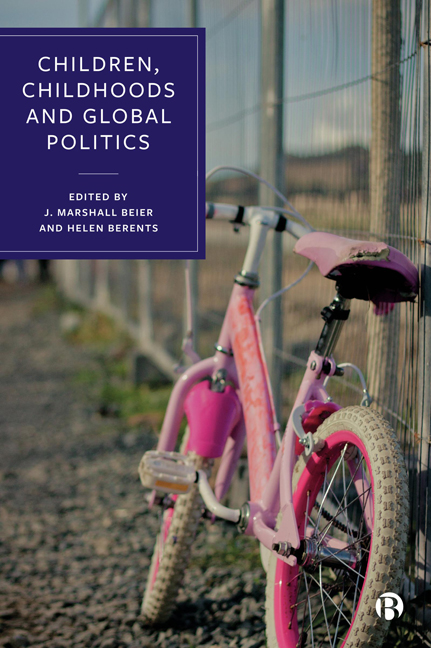8 - In/visible Subjects: Global Migration Management and the Integration of Refugee Children into Schools in Addis Ababa, Ethiopia
Published online by Cambridge University Press: 03 April 2024
Summary
Introduction
What agency do refugee children have in the face of policies and practices that emerge from global migration management paradigms? The critical literature on migration, asylum seeking, and refugees makes the key point that, due to securitized borders around destination countries, child migrants will encounter walls, detention, forced deportation, and other harsh measures which deprive them of freedoms (Bhabha, 2014; see also Chapter 9, this volume). Children sit in an uncomfortable relationship with the increasingly bifurcated categories of ‘criminal alien’ and ‘deserving refugee’ (Heidbrink, 2014; Herz, 2019; Wernesjö, 2020). Meanwhile, a corollary migration management paradigm in refugee hosting states in the Global South incentivizes and encourages would-be migrants to stay in the South. While countries in the North seek to curtail the number of refugees entering their borders, states in the Global South, close to refugees’ home countries, work with donors to reconfigure how they host and discourage secondary migration (Crawford and O’Callaghan, 2019; Nigusie and Carver, 2019; Graham and Miller, 2021). These host countries are situated to engage in a form of humanitarian borderwork on behalf of countries in the North (Rumford, 2008; Pallister-Wilkins, 2015; Little and Vaughn-Williams, 2017).
Care for children is key to this humanitarian borderwork. We focus on one component of that care – integration into local schools. This process has come to be accepted as the best practice for large hosting states in the Global South, as adopted by the United Nations High Commissioner for Refugees (UNHCR, 2019). It is a key component of broader policies aimed at curtailing migrant flows northward by locally integrating refugees into local economies and institutions (Crawford and O’Callaghan, 2019). However, local integration policy neglects the salience of long-standing regional political histories which belie the goals of welcoming and integrating refugees as they play out in refugee’s everyday personal lives.
In this chapter, we examine the diverse experiences of Somali and Eritrean refugee students as they experienced local integration into government schools in Addis Ababa, the capital of Ethiopia. Focusing on the agency of refugee children and their families, we explore how refugees navigate interconnected axes of global policy, regional politics, and relationships with local actors.
- Type
- Chapter
- Information
- Children, Childhoods, and Global Politics , pp. 114 - 126Publisher: Bristol University PressPrint publication year: 2023



